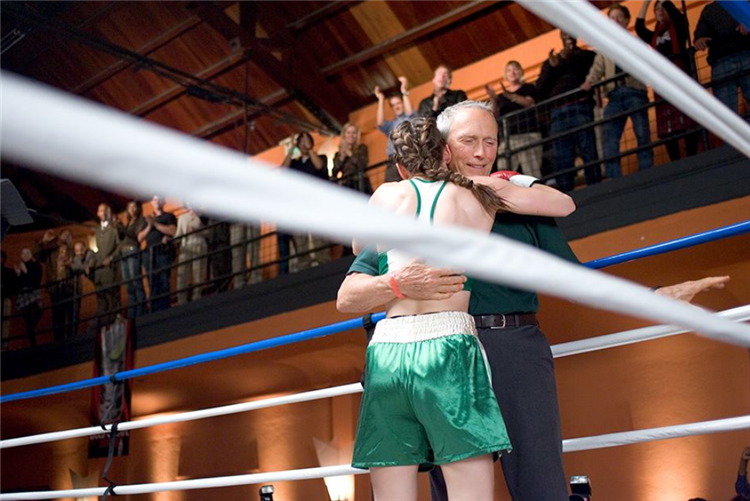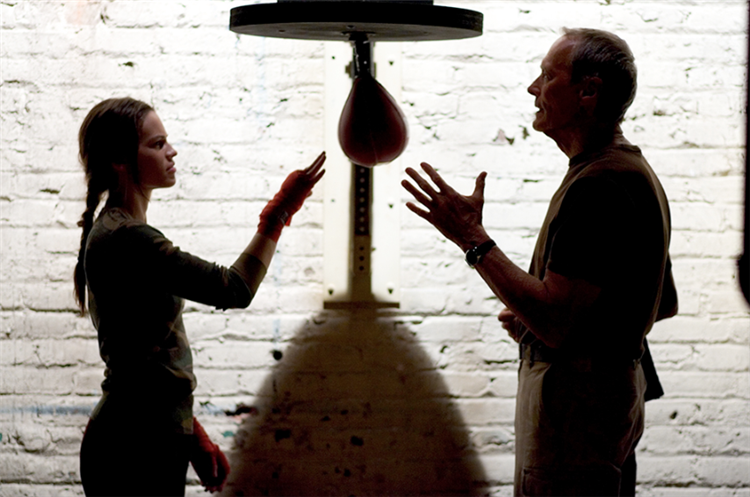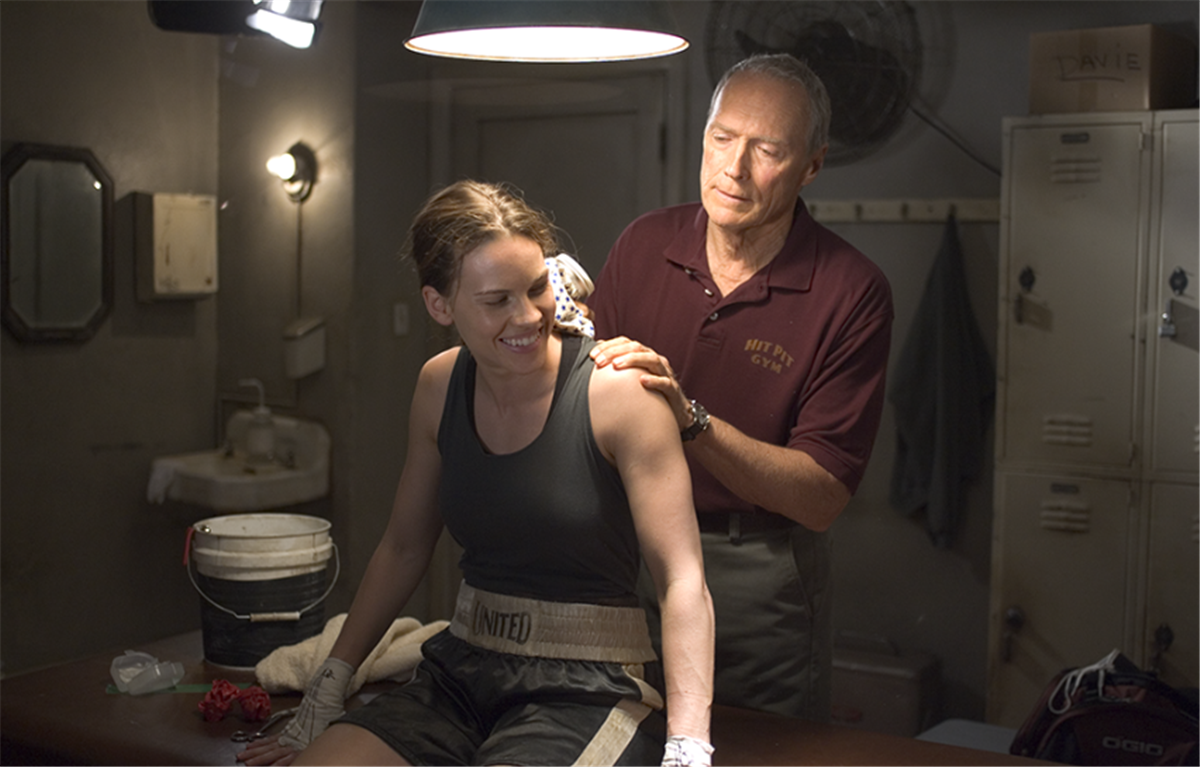“Million Dollar Baby” was Clint Eastwood’s second Best Picture winner — and, I’ve a feeling, narrowly missed out on being his third, because there was a tremendous amount of enthusiasm for “Mystic River” in 2003. Unfortunately for Eastwood, that happened to be the year voters had earmarked as the year to celebrate Peter Jackson’s brilliantly executed Middle-earth saga with the release of its concluding chapter “The Lord of the Rings: The Return of the King.” Still, I bet it was a closer vote (which is why I dearly wish the Academy of Motion Picture Arts and Sciences would release vote tallies, if only for that category).
Perhaps the most interesting aspect of “Million Dollar Baby” taking Best Picture is that, looking over the near-century-long list of winners, it’s likely in the top five of awardees you never want to watch again — not because it’s bad, but because it’s horrifically depressing. Eastwood successfully sets the film on a familiar sports movie trajectory, but then it veers shockingly off course into a despairing third act. Most viewers watch the film believing the worst that will befall Hilary Swank’s championship caliber boxer Maggie Fitzgerald is that she’ll lose, thus leading to a bittersweet finale where Maggie and her initially reluctant trainer Frankie (Eastwood) find some solace in defeat.
They don’t see her sucker punched, paralyzed and, due to being dependent on a ventilator, desperately wanting to die. No one expected to see this proud woman begging for a (stupidly illegal) mercy, and biting off her tongue to bleed to death. When that fails, a despondent Eastwood injects her with a fatal dose of adrenaline, then disappears from his gym, never to be seen again.
“Million Dollar Baby” is so relentlessly depressing, Warner Bros., which usually lets longtime studio resident Eastwood do as he pleases, balked at greenlighting the movie.
Studio execs weren’t sure audiences would want to watch Million Dollar Baby

When Alan Horn resigned as President and COO of Warner Bros in 2011, he gave a candid exit interview to The Hollywood Reporter’s Kim Masters. In discussing his highs and lows as the head of the studio, Horn owned up to his reluctance to give Eastwood the go-ahead on “Million Dollar Baby.”
As Horn recalls, “Clint came to me in his low-key way. He had not cast anybody. I read it and I thought, ‘Well, I just don’t see it.’ I thought, ‘I don’t know if women want to see a woman fight.'”
Horn’s misgivings weren’t unreasonable. This wasn’t a martial arts action film. It was about the bloodsport of boxing. In the early 2000s, Women’s MMA was years away from taking off, while women’s boxing was a blip on the sports radar (Laila Ali was a celebrated champion, but, sadly, was not a significant ratings draw).
Eastwood respected Horn’s opinion, and received the chief’s blessing to take the project to other studios. Ultimately, the best the star-filmmaker could do was a potential deal with the production company Lakeshore Entertainment, which offered to cover half the budget. Given the film’s reasonable $30 million price tag, and Eastwood’s reputation for coming in ahead of schedule and under budget, this should’ve been sufficient to secure a greenlight.
Surprisingly, Horn was still gunshy.
As ever in Hollywood, no one knows anything

With the Lakeshore deal in place, Horn was, budget-wise, open to making the “Million Dollar Baby.” He just wondered if there was anything Eastwood could do to lessen the brutally downbeat tone of the third act. As Horn told Masters:
“So I said, ‘I’m just not saying no.’ The movie killed me. I said, ‘Does she have to die in the end?’ Clint said, ‘I’m afraid so.’ I said, ‘Does she have to bite her tongue off?’ He said, ‘That’s the way we have to go.’ I said, ‘Does she have to lose the fight?’ But it shows that William Goldman was right: No one knows anything.”
Horn uneasily okayed the project, which Eastwood swiftly knocked out in June and July of 2003. “Million Dollar Baby” was finished in time to enter an underwhelming 2003 awards season that, prior to the film’s just-under-the-wire critics’ screenings, looked like a two-movie race for Best Picture between Martin Scorsese’s “The Aviator” and Alexander Payne’s “Sideways.” The former was well-liked, but didn’t feel like the home run Scorsese needed to smash to finally win the top prize (like Spielberg, the Academy held him to an impossibly high standard). As for the latter, it was more comedy than drama, which triggered the Oscars’ anti-comedy bias.
“Million Dollar Baby” is a good movie, and a particularly well-acted one, acknowledged by Swank’s well-deserved Best Actress win. It’s also one of Eastwood’s last truly exceptional directorial efforts, visually sophisticated in ways that many viewers miss. But it still feels like a make-up Oscar for “Mystic River.” In the end, it was a significant work by an Oscar-friendly filmmaker in a weak year, one that I doubt more than a handful of voters — or just about anyone — has watched a second time.
